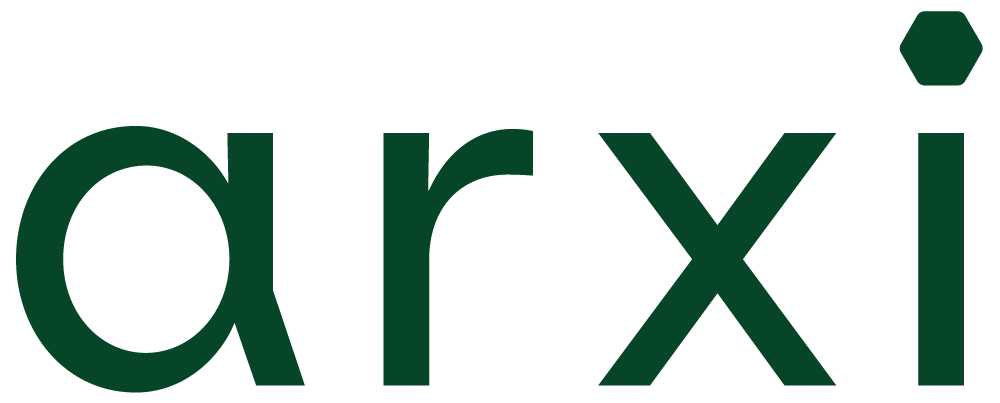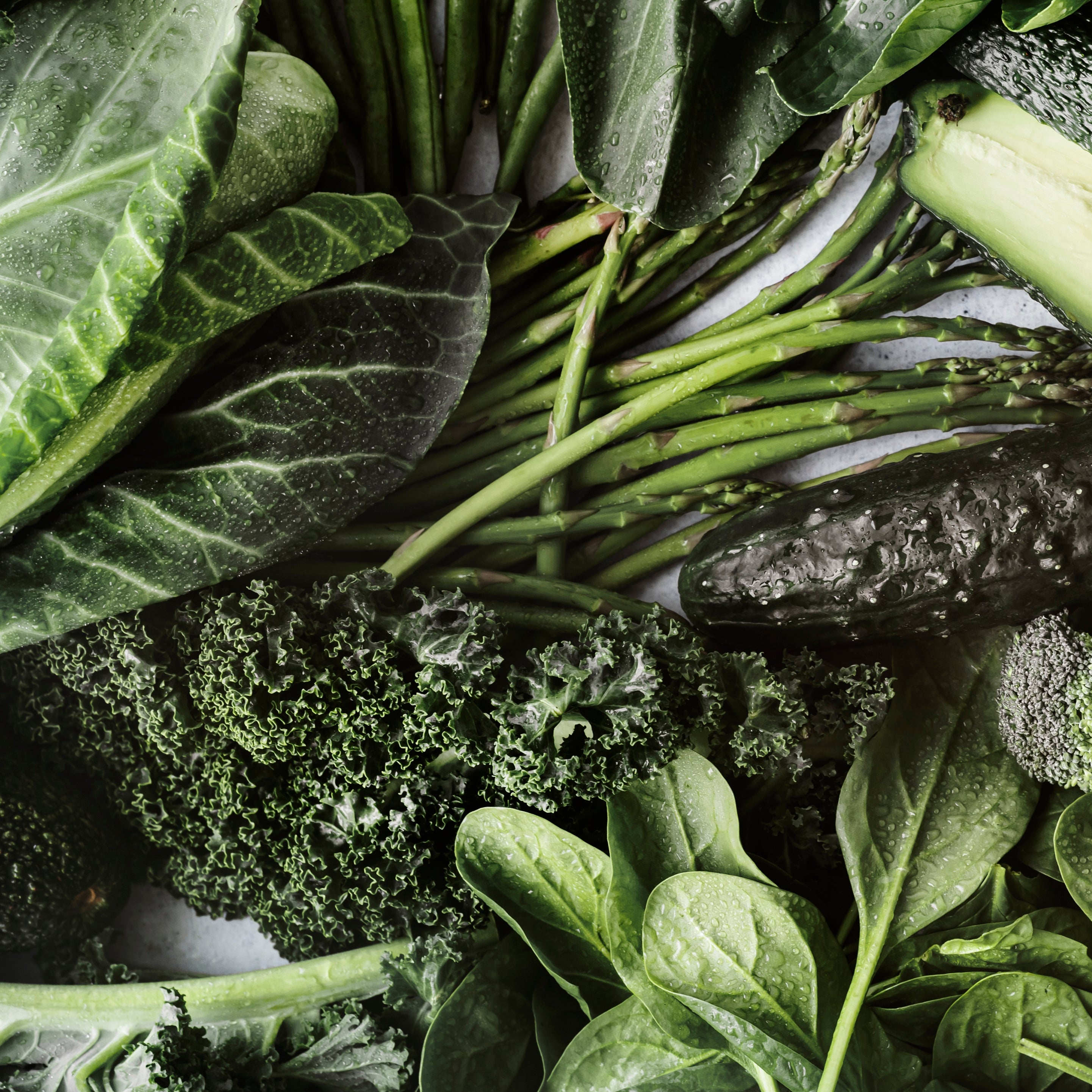Vitamin E for Female Fertility and IVF: The Antioxidant Your Ovaries Will Love
Your first brush with vitamin E might have been in cream form, turning back the clock for your skin and giving it the antioxidants it needs.. Well, good news, vitamin E helps support your ovaries too by providing protection against oxidative stressors from that weekend party, to the past lifestyle choices we wish we didn’t make (but also no regrets, right?)
At arxi HQ, we like to call vitamin E the bodyguard. Working hard every day to protect the ultimate celebrity, nope, not Paris Hilton, your cells - especially your eggs!
Let’s dive into why Vitamin E is so important for your fertility journey and how it can help protect and nourish your reproductive system.
What is Vitamin E?
Vitamin E is an essential, fat-soluble nutrient that we consume in a variety of plant foods. Throughout the body vitamin E plays many crucial roles including immune system function, skin health and supporting healthy blood flow.
When it comes to fertility we are interested in vitamin E in particular for its antioxidant properties that help protect your cells from oxidative stress and damage caused by free radicals (those dang pesky-and-unavoidable molecules that can break down cells).
Since your ovaries and eggs are particularly vulnerable to oxidative stress - especially as you age and our natural defense mechanisms start feeling a little tired - vitamin E is like a bodyguard, protecting your reproductive cells from harm.

How Vitamin E Benefits Female Fertility and Egg Health
When it comes to fertility, healthy eggs are fundamental. We actually don’t need a million eggs (though what’s crazy is that is just about how many we are born with!) but we do need a high quality egg that has the potential for fertilisation and to develop into a healthy pregnancy.
Oxidative stress can damage eggs, reducing their quality and overall fertility potential. That’s where we phone a friend and ask vitamin E to step in. By neutralising free radicals, vitamin E helps reduce oxidative stress, which may protect egg cells and improve ovarian function.
One other little thing to love about vitamin E is that additionally, Vitamin E may support blood flow to the uterus, promoting a healthier environment for embryo implantation and early pregnancy. We appreciate vitamin E for not only thinking about the health of our eggs but also for building a cosier home for a fertilised egg to eventually nest in.
Can using Vitamin E Improve IVF Outcomes?
If you’re preparing for IVF, vitamin E might be one of the key ingredients to consider adding to both your fertility diet and your fertility supplement routine.
Studies suggest that vitamin E could improve embryo quality and enhance the receptivity of the uterine lining, making it easier for an embryo to implant and thrive (Ruder et al., 2008). This antioxidant may also help protect the ovaries during stimulation and improve overall egg health, giving you the best shot at a successful IVF outcome.
The Role of Vitamin E in Egg Quality
As women age, egg quality naturally declines, making conception more difficult. But don’t lose hope! Vitamin E could help slow down this process by fighting off oxidative stress.
In fact, some research shows that vitamin E supplementation may improve egg quality and embryo quality including in those undergoing assisted reproduction like IVF (Bahadori et al., 2017). The antioxidant power of vitamin E may be especially helpful in women with conditions like PCOS (Polycystic Ovary Syndrome), which are associated with higher levels of oxidative stress that can negatively impact fertility (Chen et al., 2020).

By keeping your eggs healthy and well-protected, Vitamin E gives them a better chance of developing into healthy embryos, which is critical for both natural conception and assisted reproductive treatments like IVF.
What foods are high in Vitamin E?
Vitamin E is found in a variety of plant foods including nuts, seeds, fruits and vegetables. Some of the most concentrated food sources of vitamin E are:
- Handful of sunflower seeds (~30 grams) = 7.4 mg
- Handful of almonds (~30 grams) = 6.8 mg
- Handful of hazelnuts (~30 grams) = 4.3 mg
- Two tablespoons of peanut butter = 2.9 mg
- Half a cup of cooked broccoli = 1.2 mg
- 1 medium kiwi fruit = 1.1 mg

As vitamin E is a fat-soluble nutrient (read: you need to eat it with some fats to absorb it) the top picks are ones that contain fertility-friendly fats too, or ideally add some fats to your vitamin E-rich food e.g. drizzle your broccoli with extra virgin olive oil (which, as a bonus also contains vitamin E too!).
How Much Vitamin E Should I Take for Fertility?
If you’re thinking about adding Vitamin E to your fertility routine, we’ve got some important news for you about the dosage. Most fertility experts recommend getting Vitamin E through a high-quality fertility supplement that combines this antioxidant with other fertility-boosting nutrients.
The reason a supplement is recommended in these circumstances is that to achieve the dosage of vitamin E used in fertility research, you need to take a supplement. Because while a handful of almonds might give you 7 mg, fertility research studies most frequently use 100 mg+ of vitamin E per day!
At arxi, we’ve included Vitamin E in our specially formulated fertility supplements designed to support your journey, to help you nail your prepconception (that’s our neat and tidy way of saying ‘preconception preparations’).
Is Vitamin E Safe for Fertility?
Vitamin E supplementation is generally considered safe for most people, but it's essential to stick to the recommended doses.
As vitamin E is a fat-soluble vitamin, too much can accumulate and can interfere with blood clotting and other bodily functions, so it’s important not to overdo it. The Australian upper limit of vitamin E for females is 300 mg per day or about 447 IU per day.
When taken as part of a balanced fertility supplement, like OvaGold, Vitamin E is both effective and safe for most women while they are trying to conceive.
As always, before starting any new supplement, consult with your individual healthcare provider if you have any queries or to make sure it’s the right fit for your specific needs.
Is Vitamin E Safe for Pregnancy?
Small amounts of vitamin E are generally considered safe when taken during pregnancy, as it plays an important role in supporting a healthy immune system and cell function. However, excessive intake of Vitamin E supplements, particularly in doses greatly above the adequate intake (in Australia set at 7 mg per day for pregnant women), may potentially carry risks.
A large review of the evidence around higher dose vitamin E supplementation during pregnancy observed that while there may be some antioxidant, anti-inflammatory benefits to vitamin E use, there is also a possible association with pre-labour rupture of the membranes and an increased risk of abdominal pain (Rumbold et al., 2015).
We recommend that OvaGold is stopped once you learn that you are pregnant. OvaGold is intended to support you during your prepconception stage and can then safely be stopped once you see those two lines on the test!
OvaGold features 96 mg of Vitamin E per serve, well within the safe limits. And designed to compliment the small amounts of vitamin E, about 0-20 mg found across market leading prenatal supplements.
The Bottom Line on Vitamin E for Fertility
Vitamin E might not get the same attention as some of the other fertility-boosting nutrients out there, but its powerful antioxidant properties make it a must-have in your fertility toolkit. If you’re looking for a bodyguard for your eggs, look no further than vitamin E.
Whether you’re looking to improve egg quality, support IVF success, or enhance overall reproductive health, Vitamin E could be just what your ovaries need.
As part of a healthy, balanced fertility routine, Vitamin E is a simple and effective way to support your reproductive system and give your body the best possible chance at conception.
References
Bahadori MH, Sharami SH, Fakor F, Milani F, Pourmarzi D, Dalil-Heirati SF. Level of Vitamin E in Follicular Fluid and Serum and Oocyte Morphology and Embryo Quality in Patients Undergoing IVF Treatment. J Family Reprod Health. 2017 Jun;11(2):74–81.
Busso D, David A, Penailillo R, Echeverría G, Rigotti A, Kovalskys I, et al. Intake of Vitamin E and C in Women of Reproductive Age: Results from the Latin American Study of Nutrition and Health (ELANS). Nutrients. 2021 Jun;13(6):1954.
Chen J, Guo Q, Pei Y hao, Ren Q ling, Chi L, Hu R kui, et al. Effect of a short-term vitamin E supplementation on oxidative stress in infertile PCOS women under ovulation induction: a retrospective cohort study. BMC Women’s Health. 2020 Apr 6;20(1):69.
Ruder EH, Hartman TJ, Reindollar RH, Goldman MB. Female dietary antioxidant intake and time to pregnancy among couples treated for unexplained infertility. Fertil Steril. 2014 Mar;101(3):759–66.
Rumbold A, Ota E, Hori H, Miyazaki C, Crowther CA. Vitamin E supplementation in pregnancy. Cochrane Database Syst Rev. 2015 Sep 7;2015(9):CD004069.
Wu JH, Yang DN, Cao LJ, Luo JQ, Qian WP, Ma WM, et al. The effect of oral vitamin E supplementation on infertile women: a systematic review and meta-analysis. CEOG. 2021 Apr 15;48(2):216–22.
Vitamin E for female fertility, Vitamin E and IVF success, Antioxidants for fertility, Vitamin E benefits for egg quality, Vitamin E for male fertility, Fertility supplements with Vitamin E, How Vitamin E improves egg health, Vitamin E to support IVF, Best fertility supplements for conception.




